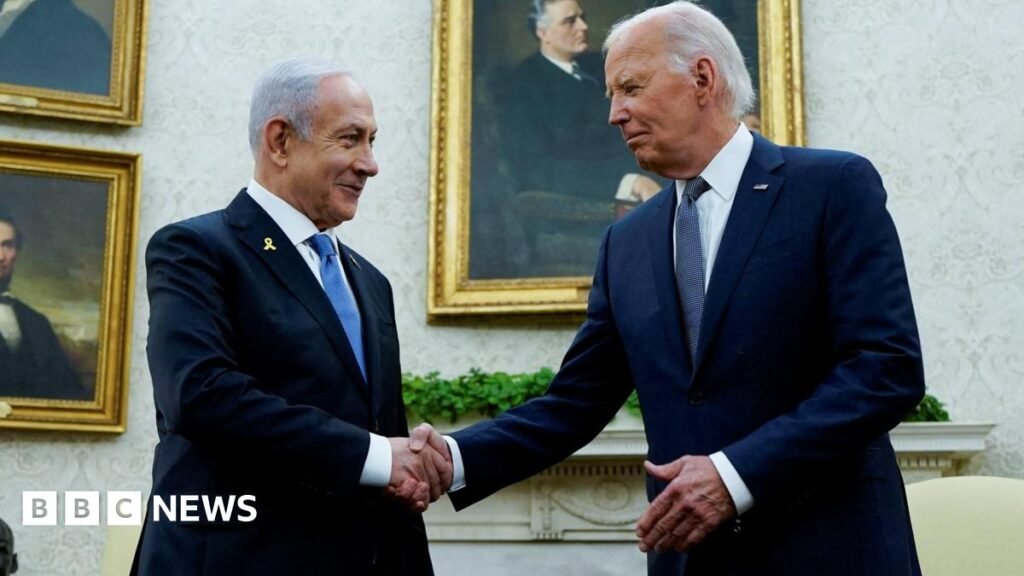In Sunday’s call, which was the first publicly announced since October, Biden “stressed the urgent need for a ceasefire in Gaza and the return of hostages with increased humanitarian aid made possible by the cessation of hostilities agreement.”
It came a day after Netanyahu sent a high-level Israeli security delegation, including the directors of the Mossad spy agency and the Shin Bet security service, to indirect talks in the Qatari capital mediated by Qatari, US and Egyptian officials.
Israeli media reported that Netanyahu met with members of his cabinet who oppose the ceasefire agreement to persuade them not to resign.
And British Foreign Secretary David Lammy met with his Israeli counterpart in Jerusalem to discuss the progress of the agreement.
Donald Trump’s Middle East envoy Steve Witkoff met with the Israeli prime minister on Saturday amid efforts to reach an agreement before the president-elect’s inauguration on January 20.
Trump has previously said that “all hell will break loose” if the hostages are not released before he returns to the White House.
US Secretary of State Anthony Blinken said last Thursday that a deal was “very close” and that he hoped to “go beyond” it before Trump takes office. Any deal would be based on the proposals Biden laid out in May, he added.
Despite the apparent increased activity, several key issues remain unclear – including whether the initial truce will lead to a permanent cease-fire and whether the Israeli military will agree to a full withdrawal from Gaza.
Anshel Pfeffer, Israel correspondent for The Economist, said he doubted a deal would be reached soon.
“We’ve been here so many times before,” he told the BBC’s Today programme.
“There’s a little bit more room for optimism, but until there’s an official announcement, a truce or a cease-fire and we start seeing hostages coming out, I’m going to remain skeptical.”
But he added that it was in both Israel’s and Hamas’ interests to make a deal before Trump takes office.
“There is a fear (from Hamas) that Trump will somehow give Israel permission to unleash devastation that has not yet been unleashed in Gaza.”
“Both sides feel so invested, they’ve suffered so much.”
The war was sparked by a Hamas attack on southern Israel on October 7, 2023, which killed around 1,200 people and took 251 people back to Gaza as hostages. In response, Israel launched a military operation in Gaza to destroy Hamas.
The Hamas-run Gaza Health Ministry says more than 46,500 people have died during the war.
Israel says 94 hostages remain in Gaza, 34 of whom are presumed dead, as well as four other Israelis kidnapped before the war, two of whom are dead.

